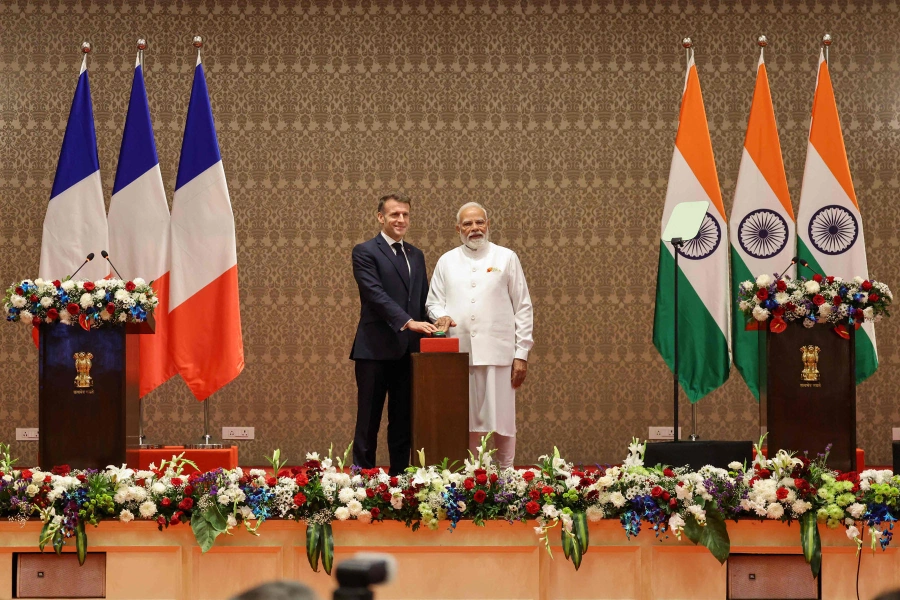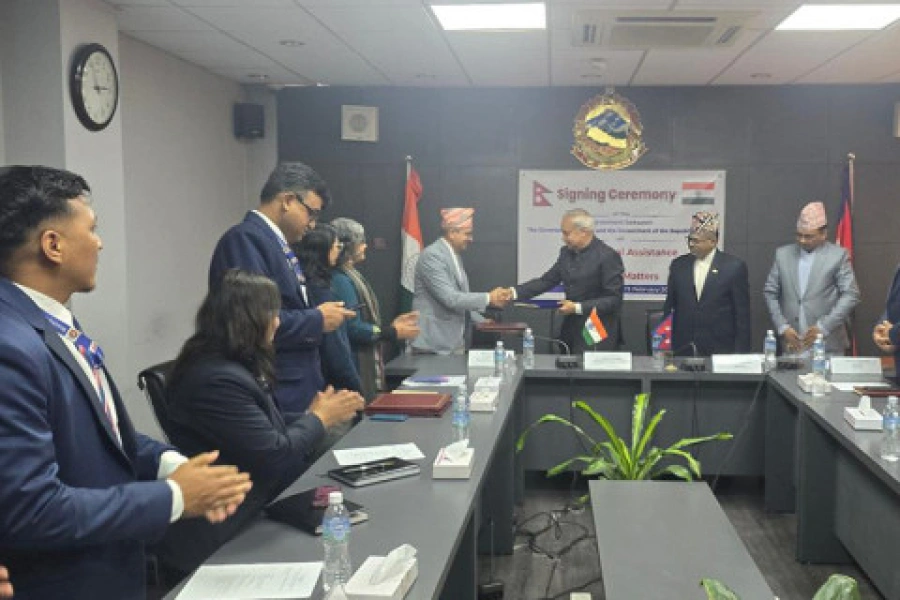The 29th United Nations Climate Change Conference (COP-29) begins on Monday in Baku, Azerbaijan, to discuss and find solutions to the global crisis caused by climate change. The conference will last for two weeks and will be attended by nearly 50,000 participants, including leaders, diplomats, scientists and campaigners from 200 countries of the world. Nepal’s President Ram Chandara Poudel left for the Azerbaijan capital on Sunday, accompanied by Minister for Forests and Environment Ain Bahadur Shahi Thakuri and other senior government officials. President Poudel is due to address a high-level session on November 13 and return home on November 15. Nepal is one of the worst-hit countries by climate change. Nepali delegates will be raising a host of issues at the climate conference. They include climate finance; climate risks mitigation; just transition; and loss and damage fund, among others.
As a landlocked country in South Asia, Nepal is highly vulnerable to climate change, and has experienced climate change at a faster rate than global average. Geological and climate-related disasters, such as landslides, flash floods, and droughts have become the order of the day. Climate change has impacted Nepal's economy through lower agricultural productivity, massive disruption of by-land transport networks. Studies by the Asian Development Bank suggested Nepal faces losing 2.2% of annual GDP due to climate change by 2050. Besides, rising temperatures and flooding during the monsoon season tend to cause epidemics, mainly cholera and diarrhea. Also, climate change causes loss of forests and biodiversity in Nepal. The mountain regions of Nepal are said to be more vulnerable to climate change. The recorded rates of warming in the Himalayas are said to be higher than the global average. Nepal’s snow-capped mountains, one of the major sources of tourism revenue, have lost close to one-third of their ice in over 30 years due to global warming.
Civil society calls for inclusive climate action ahead of COP29

This year’s conference of the countries that are parties to the United Nations Framework Convention on Climate Change, is going to be held in a drastically changed global geopolitical scenario. After Donald Trump, who has been dismissive of climate change and global warming, won the presidency of the United States last week, doubts have arisen as to how global solidarity and cooperation on climate change will increase. After his election in 2016, US President Donald Trump announced that the US would withdraw from the Paris Agreement on climate change. He has said that he will do the same in his second term. This has raised questions about the future role of the global superpower United States, which is ranked second in the list of carbon emitters, in taking responsibility for mitigating the effects of climate change. It is estimated that the lack of activity of the United States may influence the success of the conference in the context of determining the new goals of finance needed for climate action and managing the resources. It remains to be seen as to how the Nepali delegates will be able to voice the grave concerns that Nepal faces. While Nepal suffers massively, the country cannot do much without international support and commitment to strengthen its national capacity to fight the adversities brought about by climate change.






































